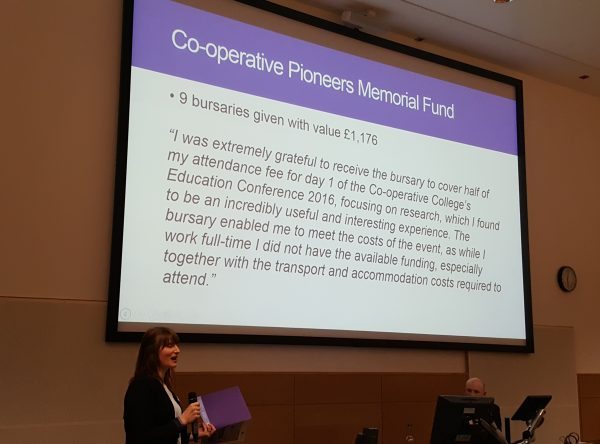The Co-operative College presented members with the results at its AGM last week, after the first year under its new legal structure.
At last year’s meeting it unveiled a long-term strategy of investment for growth, which has reduced its total charitable funds, the meeting was told.
Since the College became a member-led charity – under the legal structure of a charitable incorporated organisation (CIO) – on 1 May 2015, 209 individuals and 11 organisations have joined.
For that 15-month period, the College reported an income of £1,269,695, the AGM heard.
The organisation ended the 15 months with total charitable funds of £4,009,244, a reduction of £213,483 on the previous reporting period.
Of this reduction, £155,597 relates to a planned operating deficit, with a further £45,295 spent on planned strategic investment in membership development, marketing, fundraising and communication. Through these efforts, the College aims to diversify its income.
The College has also invested £3.72m from its total balance sheet, as approved by the board of trustees, to raise income in interest to further the charity’s objective. For this period, the average rate of return on interest and dividends was 2.9%, with a capital growth on investment of £232,736.
With expenditure for the same period exceeding £1.7m, the College ended the first 15 months as a CIO with an underlying operational deficit of £155,597, which is lower than the £211,069 operational deficit reported for the 16 months under the previous charity structure.
The organisation has set a long-term target to break even by the end of the financial year ending July 2019.
“We need to get back to breaking even operationally, we are not there yet,” said Emma Willder, vice principal for finance and resources, at the AGM.

College principal and chief executive Simon Parkinson said the organisation was making progress on the goals set out in 2016. He also encouraged individuals and organisations joining the College to be active members.
“Support us and come and help us shape the College. Help drive a new approach to co-operative education and learning,” he said.
Throughout the 15 months, the College has delivered more than 5,980 hours of learning and development to co-operatives in the UK, developed more than 100 training courses (both online and face-to-face), and has supported over 600 co-operative schools in England.
The organisation carried on its work on co-operative development projects in Malawi and Sri Lanka, and continued its involvement in the SUSY project, a project co-financed by the European Union promoting the social and solidarity economy.

